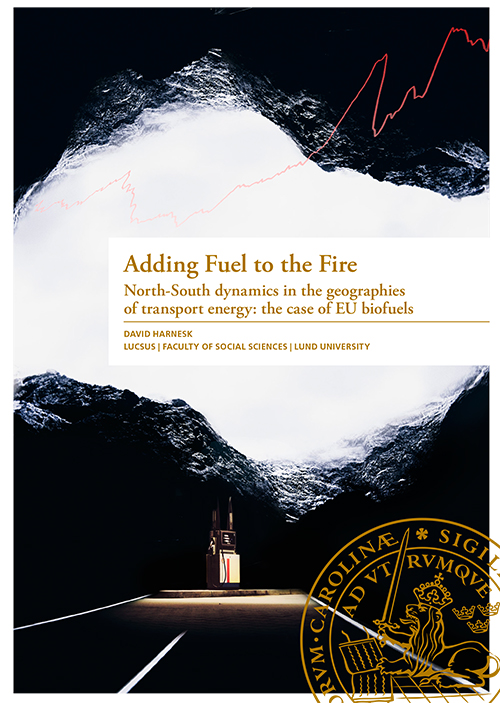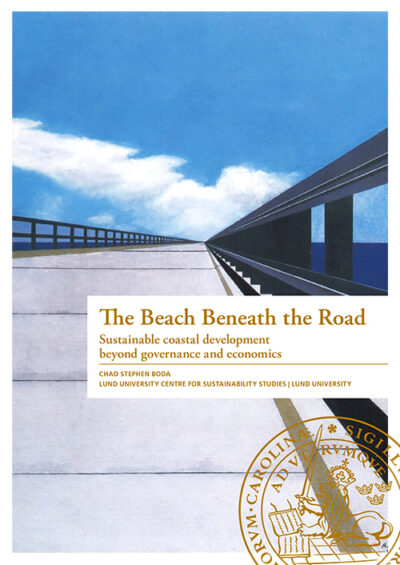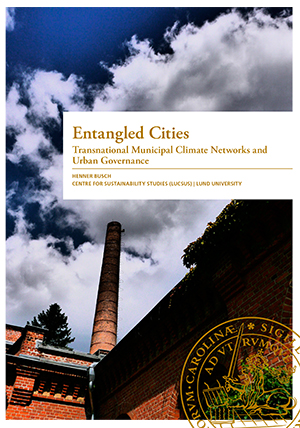Adding Fuel to the Fire
North-South dynamics in the geographies of transport energy: the case of EU biofuels
David Harnesk
213 kr
Beskrivning
Since the 2000s, the European Union (EU) has promoted biofuels for transport to achieve climate change mitigation and rural development in the global South. Yet, intense debate suggests the opposite: that the promotion of biofuels in fact impedes more meaningful mitigation while also worsening rural livelihood conditions by dispossessing people from land and making local labour redundant. Why has the EU promoted biofuels for transport despite these doubts? Can its regulation assure the desired outcomes of significant greenhouse gas emission reductions in transport and positive social effects in rural areas? If not, what would constitute more viable alternatives for achieving the desired outcomes?
In this thesis I find plausible answers by examining the complex interdependencies of energy and geography. Specifically, I argue that the EU•™s promotion of biofuels for transport is a geopolitical process incapable of achieving its internal goals. Looking forward, I discuss more viable alternatives that can be promoted by exploiting the gaps and contradictions in the EU•™s support of biofuels that have now been identified within the geographies of transport energy.
Lund University Centre of Excell ence for Integration of Social and Natural Dimensions of Sustainability (LUCID). LUCID is a Linnaeus Centre at Lund University. It is funded by the Swedish Research Council Formas, comprises six disciplines from three faculties and is coordinated by LUCSUS as a faculty independent research centre. Research aims at the integration of social and natural dimensions of sustainability in the context of grand sustainability challenges such as climate change, biodiversity loss, water scarcity and land use change. The scope is broad, the ambition is bold and the modes of operation are collaborative. Over the course of ten years we will develop sustainability as a research field from multidisciplinarity to interdisciplinarity to transdisciplinarity.
Ytterligare information
| Vikt | 482 g |
|---|---|
| Storlek | 13 × 169 × 239 mm |
| Språk | Engelska |
| Antal sidor | 216 |
| Publikationsår | 2018 |
| Bandtyp | Häftad |
| ISBN | 978-91-982201-9-3 |





